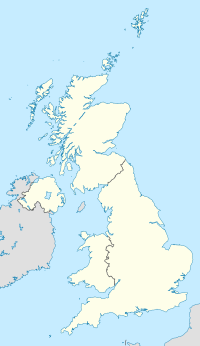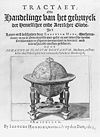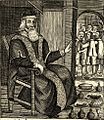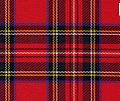Portal:United Kingdom
The United Kingdom Portal
 |
 |

| |
The United Kingdom of Great Britain and Northern Ireland, commonly known as the United Kingdom (UK) or Britain, is a country in Northwestern Europe, off the coast of the continental mainland. It comprises England, Scotland, Wales, and Northern Ireland. The UK includes the island of Great Britain, the north-eastern part of the island of Ireland, and most of the smaller islands within the British Isles, making up a total area of 94,354 square miles (244,376 km2). Northern Ireland shares a land border with the Republic of Ireland; otherwise, the United Kingdom is surrounded by the Atlantic Ocean, the North Sea, the English Channel, the Celtic Sea, and the Irish Sea. The United Kingdom had an estimated population of over 68.2 million people in 2023. The capital and largest city of both England and the United Kingdom is London, whose wider metropolitan area is the largest in Western Europe, with a population of 14.9 million. The cities of Edinburgh, Cardiff, and Belfast are the national capitals of Scotland, Wales, and Northern Ireland, respectively.
The lands of the UK have been inhabited continuously since the Neolithic. In AD 43, the Roman conquest of Britain began; the Roman departure was followed by Anglo-Saxon settlement. In 1066, the Normans conquered England. With the end of the Wars of the Roses, the English state stabilised and began to grow in power, resulting by the 16th century in the annexation of Wales, and the establishment of the British Empire. Over the course of the 17th century, the role of the British monarchy was reduced, particularly as a result of the English Civil War. In 1707, the Kingdom of England and the Kingdom of Scotland united under the Treaty of Union to create the Kingdom of Great Britain. The Acts of Union 1800 incorporated the Kingdom of Ireland to create the United Kingdom of Great Britain and Ireland in 1801. Most of Ireland seceded from the UK in 1922 as the Irish Free State, and the Royal and Parliamentary Titles Act 1927 created the present United Kingdom.
The UK became the first industrialised country and was the world's foremost power for the majority of the 19th and early 20th centuries, particularly during the Pax Britannica between 1815 and 1914. The British Empire was the leading economic power for most of the 19th century, a position supported by its agricultural prosperity, its role as a dominant trading nation, a massive industrial capacity, significant technological achievements, and the rise of 19th-century London as the world's principal financial centre. At its height in the 1920s, the British Empire encompassed almost a quarter of the world's landmass and population, and was the largest empire in history. However, its involvement in the First World War and the Second World War damaged Britain's economic power and a global wave of decolonisation led to the independence of most British colonies. (Full article...)
Featured article
The Battle of Arras was a British offensive during World War I. From 9 April to 16 May, 1917, British, Canadian, and Australian troops attacked German trenches near the French city of Arras on the Western Front. The Arras offensive was conceived as part of a plan to break through the German defences into the open ground beyond and engage the numerically inferior German army in a war of movement. It was planned in conjunction with the French High Command, who were simultaneously embarking on a massive attack (the Nivelle Offensive) about eighty kilometres to the south. The stated aim of this combined operation was to end the war in forty-eight hours. At Arras, the British Empire's immediate objectives were more modest: (1) to draw German troops away from the ground chosen for the French attack and (2) to take the German-held high ground that dominated the plain of Douai. After considerable bombardment, Canadian troops advancing in the north were able to capture the strategically significant Vimy Ridge. Only in the south, where British and Australian forces were frustrated by the elastic defence, were the attackers held to minimal gains. Although these battles were generally successful in achieving limited aims, many of them resulted in relatively large numbers of casualties. (Full article...)
Featured biography
Robert Hues (1553–1632) was an English mathematician and geographer who made observations of the variations of the compass off the coast of Newfoundland. He either went there on a fishing trip, or joined a 1585 voyage to Virginia arranged by Walter Raleigh and led by Richard Grenville which passed Newfoundland on the return journey to England. Between 1586 and 1588, Hues travelled with Thomas Cavendish on a circumnavigation of the globe, taking the opportunity to measure latitudes. In 1589, Hues went on the Earl of Cumberland's raiding expedition to the Azores to capture Spanish galleons. Beginning in August 1591, Hues travelled with Cavendish again, intending to complete another circumnavigation of the globe. During the voyage, Hues made astronomical observations while in the South Atlantic, and also observed the variation of the compass there and at the Equator. Cavendish died on the journey, and Hues returned to England in 1593. In 1594, Hues published his discoveries in the Latin work Tractatus de globis et eorum usu (Treatise on Globes and their Use) which was written to explain the use of globes that had been made and published by Emery Molyneux in late 1592 or early 1593, and to encourage English sailors to use practical astronomical navigation. Hues' work subsequently went into at least 12 other printings in Dutch, English, French and Latin. (Full article...)
General images -
Subportals
WikiProjects
Things you can do
- Visit the British Wikipedians' notice board.
- The noticeboard is the central forum for information and discussion on editing related to the United Kingdom.
- Comment at the British deletion sorting page.
- This page lists deletion discussions on topics relating to the United Kingdom.
Featured pictures
Did you know -

- ... that despite being an independent candidate, Leanne Mohamad came within 528 votes of defeating shadow health secretary Wes Streeting in the 2024 UK general election?
- ... that Sting wrote "We Work the Black Seam" because he felt that "the case for coal was never put to the nation" during the 1984–85 British miners' strike, which began 40 years ago today?
- ... that Youlgreave in Derbyshire is one of only a few villages in the United Kingdom to be supplied by its own private waterworks?
- ... that South African president Jacob Zuma requested a tour of a Sainsbury's supermarket during his state visit to the United Kingdom in 2010?
- ... that New Zealand composer Maewa Kaihau sold her rights to the song "Now is the Hour" for £10, a decade before it became a hit in the United Kingdom and United States?
- ... that the Labour Party received their highest share of the vote to date in the 1951 UK general election but still lost to the Conservatives, who received fewer votes?
In the news
- 27 December 2024 – Red Sea crisis
- Houthi-run state television reports that American and British airstrikes have targeted the Ma'ain District of Sanaa, Yemen. No casualties are reported. (Anadolu Agency)
- 26 December 2024 – 2021–present United Kingdom cost-of-living crisis
- The United Kingdom's Office for National Statistics announces that the UK economy showed no growth in the 3rd quarter of the current fiscal year, following downward revisions. (AP)
- 19 December 2024 – Russian invasion of Ukraine
- Military aids during the Russian invasion of Ukraine, United Kingdom and the Russian invasion of Ukraine
- 19 December 2024 – Georgia–United Kingdom relations, Georgia–United States relations, 2024 Georgian post-election protests
- The United Kingdom and the United States impose sanctions on Georgian officials, including Interior Minister Vakhtang Gomelauri, in response to alleged violent crackdowns on pro-European protests. (EFE)
- 18 December 2024 – Legal affairs of the Tate brothers
- The Westminster Magistrates' Court rules that British police may seize £2.2 million (US$2.5 million) from influencer Andrew Tate and his brother Tristan for allegedly failing to pay taxes on profits from their online ventures. (DW)
- 15 December 2024 – Free trade agreements of the United Kingdom
- The United Kingdom joins the Comprehensive and Progressive Agreement for Trans-Pacific Partnership, becoming the 12th member and the first European member. (Reuters)
Categories
Other UK-connected Wikipedias
Wikimedia
The following Wikimedia Foundation sister projects provide more on this subject:
-
Commons
Free media repository -
Wikibooks
Free textbooks and manuals -
Wikidata
Free knowledge base -
Wikinews
Free-content news -
Wikiquote
Collection of quotations -
Wikisource
Free-content library -
Wikiversity
Free learning tools -
Wikivoyage
Free travel guide -
Wiktionary
Dictionary and thesaurus





















































































































